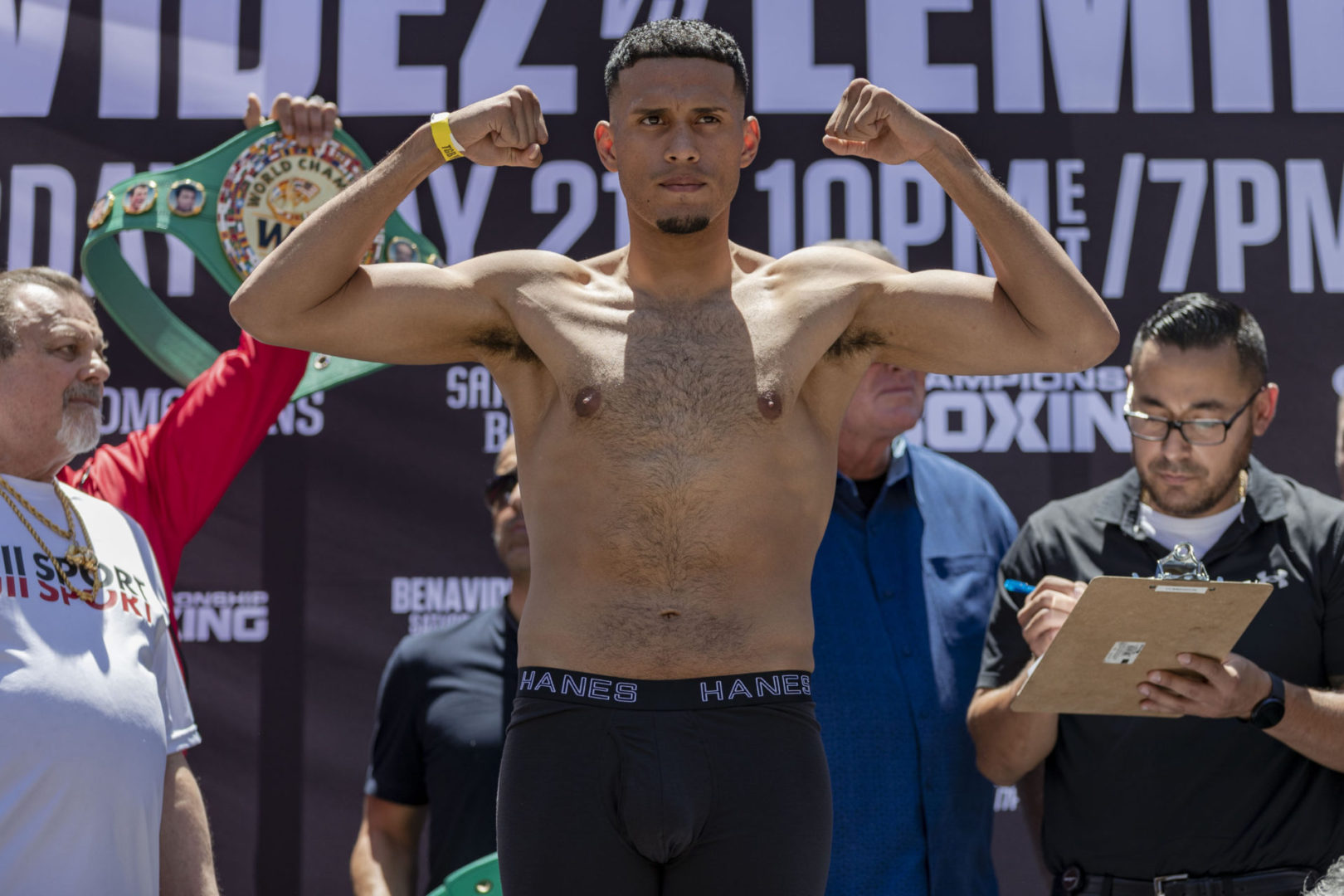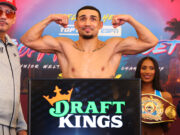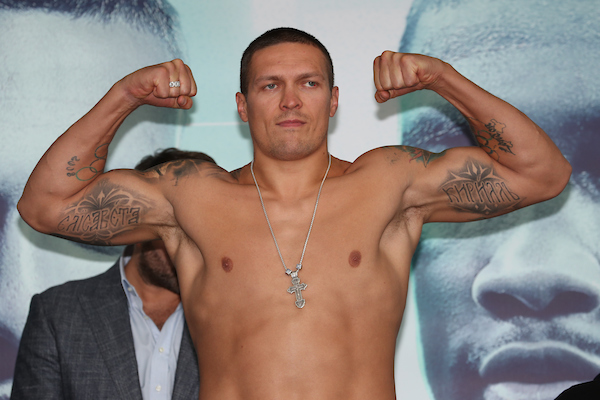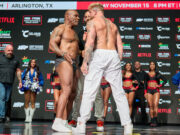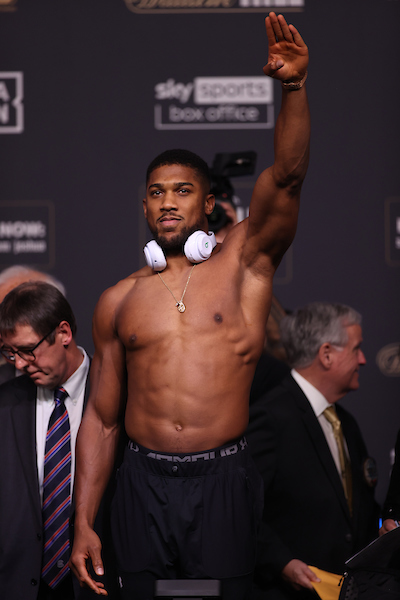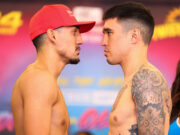By Norm Frauenheim-
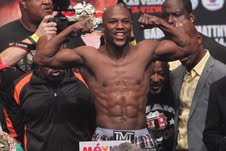
Reports of Floyd Mayweather Jr.’s intravenous injection for possible dehydration on the day before his victory over Manny Pacquiao is clouding his potential farewell fight against Andre Berto Saturday with controversy amid questions about fairness, transparency and the procedures employed by the drug-testing bureaucracy.
In an explosive story posted by SB Nation before Wednesday’s Mayweather-Berto news conference at Las Vegas’ MGM Grand, author Thomas Hauser, also a Home Box Office employee, reported that Mayweather underwent a banned IV after the weigh-in for the May 2 fight.
The reported substance, saline and vitamins, is legal, according to World Doping Agency (WADA) rules, which are followed by the U.S. Anti-Doping Agency (USADA). USADA conducted the Mayweather-Pacquiao testing. But the method is illegal. According to WADA guidelines, an IV can mask a banned substance.
In a statement Thursday, Mayweather denied any wrongdoing, saying he “did not commit any violations of the Nevada or USADA drug testing guidelines.”
But the current controversy continues amid questions about USADA’s timing in its approval of Mayweather’s IV. According to USADA’s contract with Mayweather and Pacquiao, an exemption for IV use could be granted for therapeutic reasons. USADA discovered Mayweather had used an IV when it visited him for a test at his Las Vegas home after the May 1 weigh-in.
According to Hauser’s report, however, Mayweather did not formally apply for the exemption until May 19, 17 days after the fight. USADA granted him the exemption on the next day, May 20, 19 days after he underwent the IV.
“Although Mr. Mayweather’s application was not approved until after his fight with Mr. Pacquiao and all tests results were reported, Mr. Mayweather did disclose the infusion to USADA in advance of the IV being administered to him,’’ USADA said Thursday in a statement.
The reports about documents dated after the fact come in the wake of condemnations for the way Pacquiao disclosed an injury to his right shoulder at the news conference immediately after losing a one-sided decision to Mayweather on May 2 in a fight that generated record revenues.
According to Pacquiao, manager/adviser Michael Koncz and Top Rank promoter Bob Arum, Pacquiao asked for an exemption for an injection of Toradol, a pain-killer. The Nevada State Athletic Commission denied the request, saying it was not done “in a timely manner.’’
Thus far, however, it’s not clear how – or even if – USADA and the Nevada commission communicate.
Bob Bennett, executive director of the Nevada Commission, told the media on Thursday that only the Commission can grant exemptions. USADA did not inform the Commission of Mayweather’s IV until three days after the fight, he said.
Pacquiao’s representatives said they had told USADA that they wanted an injection of Toradol for the ailing shoulder before opening bell. When the Commission learned about the planned injection, it intervened, saying it had not been formally notified.
Pacquiao blamed the shoulder injury for his sub-par-performance. He had the shoulder in a sling when he met Filipino media in his Las Vegas hotel suite the morning after and underwent surgery about a week later.
Lawsuits across the nation were filed after Mayweather-Pacquiao. The plaintiffs allege that the bout was fraudulent. They are seeking damages and class-action status. Allegations already include a failure to disclose Pacquiao’s shoulder injury. Controversy over Mayweather’s IV might become another one.





